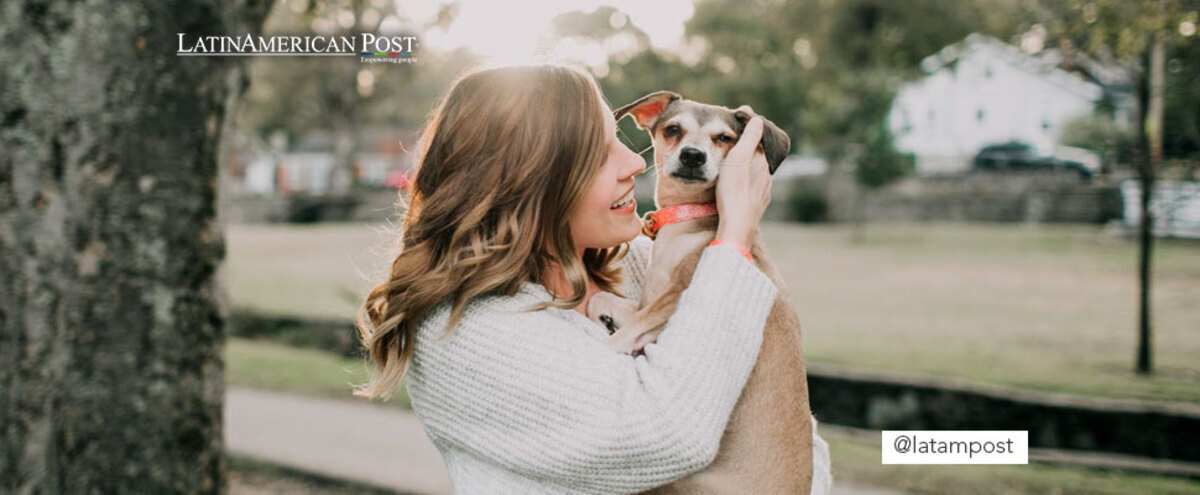Tips For Leaving Your Pet With Another
At LatinAmerican Post we bring you three important points to keep in mind when leaving your pet in the care of another, to prevent you and the animal from suffering during the separation.

Photo: Unsplash
LatinAmerican Post | Christopher Ramírez
Listen to this article
Leer en español: Recomendaciones para dejar a tu mascota al cuidado de otro
It is no secret to anyone that domestic animals, better known as pets, have become an extension of the family. People who have a dog, cat, canary, hamster and even rabbits know that more than simple living creatures that need water and food to live, they also denote certain feelings of attachment towards 'their' human beings, the same ones that generate a special connection between them and their owners.
However, people often cannot be with their pets all the time. Whether for work reasons or because the family is going on vacation to a place where animals are not allowed, the truth is that there are going to be situations in which people will have to separate from their 'furry ones' and it is in those moments when they must make an important decision: who to leave them with?
Thinking about this, LatinAmerican Post brings a series of tips so that all people who need to leave their pet in the care of someone else, know how to make this transition in a healthy, optimal and careful way, both for the animal and for the person that will take care of it.
Never leave it alone
To begin with, it's important to note that leaving your pet alone should never be an option, or at least not for more than a day. All animals require certain types of care that cannot wait for more than 24 hours, and this point not only refers to the natural demands such as food, drink, and grooming needs of pets, but also to their recreation.
It should be remembered that every animal, especially a dog, needs some quality time with its owner or trusted person in order to drain its energy and, above all, not to generate a state of depression or "separation anxiety". For this reason, it is always best to find someone who can take care of it.
Prepare for the separation, but not too much
Another point to keep in mind is that animals are very cunning and can detect when people are 'plotting' a plan in which they are not the protagonists. Of course, they cannot imagine that their humans will leave them with other people in a place other than their home, but they do perceive mood swings, anxiety, nervousness or other behaviors prior to the trip.
Thus, the best way to prepare pets for separation is not to show that you have a very different plan for them in the coming days.
However, it is advisable, days before the separation, to take the animal to the place where it is going to be cared for and, of course, to let the person who will be in charge of it know, in case they have not “shown up” before.
In this way, the pet will get used to what will be its new reality, at least until its owner returns for it.
Also read: Dog ownership may be associated with longer life
Choose your caregiver well
This topic is closely related to the previous one, since not all animals can be cared for by anyone. Just like humans, pets have different personalities that make them unique when empathizing with people or environments.
To begin with, it is important that the person who takes care of the pet is someone who loves animals and who assumes their responsibility not as a burden, but as an opportunity to have a new experience. Someone bored or apathetic will surely make the animal's stay in his house a complete 'hell', both for him and for itslef; because of this, someone like that can never be an option.
Second: you have to take into account the personality of the animal. In the ideal world, all animals could be considered "normal", but the truth is that they are not all the same, and pets are no exception. It is relevant to try to accommodate people with animals and in this case take into account the customs or attitudes of the dog, cat or other pet.
For example, in the case of dogs: if he is sensitive or fearful, the ideal is for him to spend the time of separation with a person he trusts, both for him and for his owner. It has to be someone you have known for a long time, with whom you have already shared, and with whom you feel affinity and freedom.
Another situation that can arise is that the animal is not very sociable, either with other pets or with the same humans. In the case of the first scene, the ideal is to take him to a house where there are no other animals and where the attention is 100% for him; If the scenario is apathy toward humans, it is best to look for a shelter or a person who guarantees that the animal will have more contact with pets of the same species than with people.
It is also possible that the animal is very active, and this situation could be easily controlled by leaving it with someone who is in charge of draining all its energy with games, exercises, and other activities that make it 'feel alive' constantly. Of course, finding a family member, friend, or acquaintance who guarantees this reality is not easy, so if you cannot find one, an animal daycare can be a great option.
Finally, some more advice: the owners could leave a garment with their scent so that the animal misses it less and, of course, it is necessary that they be very specific with the situation, attitudes and customs of their pet. Not all animals have the same behaviors, and this is something your keeper should be aware of.




